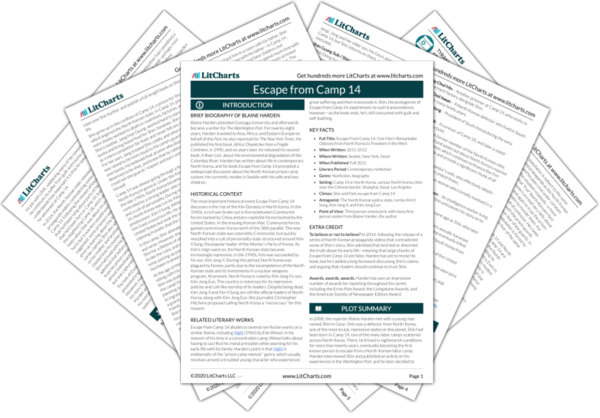Once again, Shin had some remarkable good luck: he was able to find lots of food and enough warm clothing to survive in the freezing weather. Because Shin’s quality of life had always been so low, he was able to survive in the outside world, keep his hopes up, and remain focused on escaping to China.
